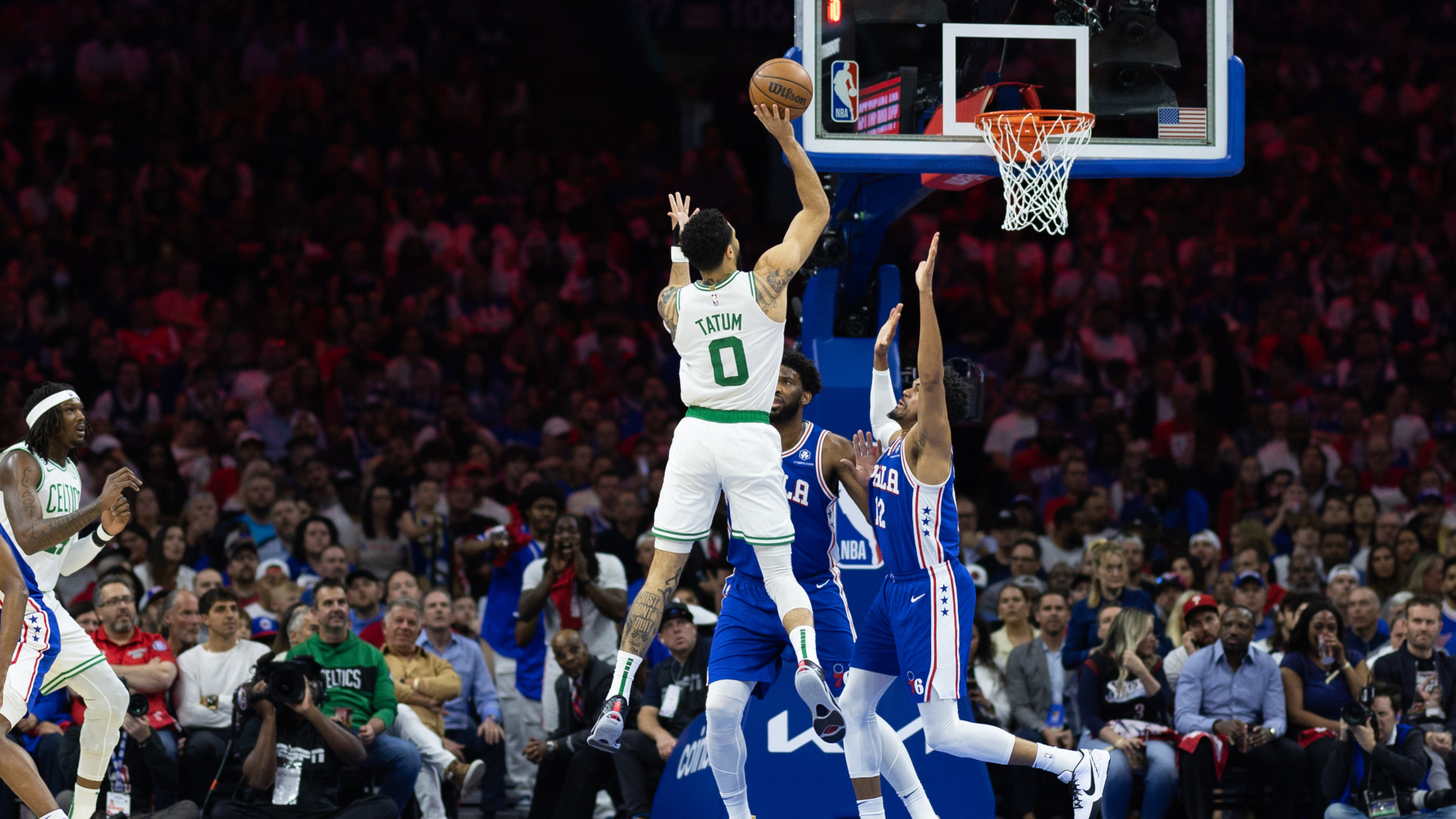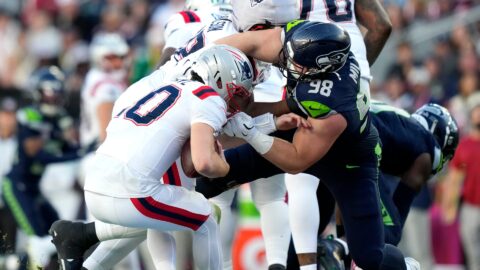The National Hockey League announced the three finalists for the Norris Trophy on May 4. The names weren't really a shock to many, but the award, given annually to the "defense player who demonstrates throughout the season the greatest all-round ability in the position," seems to have gone by offensive stats over the past few years instead of the incorporation of the defensive side of the position.
San Jose Sharks' Erik Karlsson, New York Rangers' Adam Fox and Colorado Avalanche's Cale Makar were named the 2022-23 finalists, but did Boston Bruins defensemen Hampus Lindholm and Charlie McAvoy get snubbed? Let's dive into some stats that just might make the case they were.
POINTS
If you look at the group offensively, there is no doubt that Karlsson leads the pack with 101 points (25 goals, 76 assists). Fox potted 12 goals and added 60 helpers for his 72 points and Makar's 66 points were made up of 17 goals and 49 assists. The non-nominees, Lindholm (10 goals, 43 assists, 53 points) and McAvoy (seven goals, 45 assists, 52 points) weren't as offensively sound as the three finalists, but the Norris is about "all-around ability," not offensive ability.
PLUS/MINUS
This stat is meaningless to some, but it does register the goals-for and goals-against when the player is on the ice, and for the Norris, it should be a factor. Karlsson had an abysmal minus-26 on the season, so even though he led all defensemen in scoring, his goals-for/goals-against ratio was not good. Fox finished the season as a plus-28 and Makar also finished above the standard at plus-16. Lindholm not only led the Bruins in the category, but he led the entire NHL at a plus-49. McAvoy finished at a very respectful plus-29.
GOALS-FOR/GOALS-AGAINST
This stat gets a bit tricky because you can factor in power plays, penalty kills and even strength.
San Jose scored 233 goals in the 2022-23 season while giving up 315. Karlsson was on the ice for 39 power-play goals, one short-handed goal, and 110 even-strength goals, as opposed to being on the ice when the Sharks gave up 11 short-handed goals, two power-play goals, and 126 even-strength.
New York scored 273 goals while giving up 216. Fox was on the ice for 50 power-play goals, three short-handed goals and 84 even-strength goals, as opposed to being on the ice when the Rangers gave up five short-handed goals, 22 power-play goals and 54 even-strength goals.
Colorado scored 274 goals while the opposition potted 223. Makar was on the ice for 29 power-play goals, three short-handed goals and 71 even-strength goals, as opposed to being on the ice when the Avalanche gave up four short-handed goals, 16 power-play goals and 55 even-strength goals.
Boston scored 301 goals while the opposing teams notched 174. Lindholm was on the ice for 29 power-play goals, two short-handed goals and 91 even-strength goals, as opposed to being on the ice when the Bruins gave up two short-handed goals, 16 power-play goals and 42 even-strength goals.
McAvoy had similar stats to Lindholm, being on the ice for 23 power-play goals and 72 even-strength goals, as opposed to being on the ice when Boston gave up four short-handed goals, 10 power-play goals and 39 even-strength goals.
All five defensemen averaged more than 22 minutes of ice time, but the one discrepancy is Karlsson only averaged 22 seconds of ice time on the penalty kill, meaning the Sharks did not rely on him defensively in short-handed situations.
Given these stats, Lindholm or McAvoy could replace any of the three finalists. The only stat the finalist beat the Bruins' blue liners at is offense, not all aspects of the position. Maybe the NHL should look into creating an offensive award for defensemen and leave the Norris for the best defensive-defenseman.









